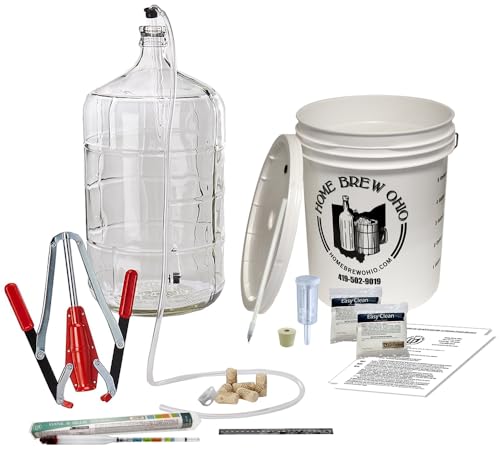I am posting this one in the beginners section because... Well, I am one, and I have seen quite a few posts from new members asking if wine can be made without adding chemicals.
My experience... Absolutely, but it depends what you are trying to accomplish.
I made a bunch of quick drinkers and all had chemicals in them to promote fast fermentation. K-meta (Potassium Metabisulphite), yeast energizer (a mix of diammonium phosphate, yeast hulls, magnesium sulphate, and vitamin B complex), and yeast nutrient (DAP - diammonium phosphate). It was my assumption that they would be used up in fermentation, but I got a real heady/dirty buzz off the batches I made. All were treated with sorbate (potassium sorbate- Used to neutralize live yeast and stop a second ferment from starting with the addition of sugars intended to sweeten a wine) to allow back sweetening which I assumed was where the heady effects were coming from.
I have since made kit wines, and country wines, carrot, dandelion, and others without adding anything other than K-meta. This can also be omitted, but it offers protection to wine and I feel there is no value in trying to go without. All of my chemical free wines have fermented out without issue and although the chemical additives may make for a more reliable ferment, not adding them did not hinder the process at all.
Because I thought the chemicals added before fermentation would be used up by the yeast, I was going after sorbate as the cause of my dirty buzz. Yesterday I filtered a Dragon's Blood with a Buon Vino wine filter. First using number 2 filters and then number 3 sterile filters of .5 micron to remove yeast suspended in the wine. I mixed up 1 cup of sugar in 1 cup of water and added half to the wine after filtering last night. There were no signs of fermentation starting this morning and I added the second half today. There are still no signs of any reactivation of fermentation.
So in conclusion, all of the step at which we add chemicals can be omitted other than properly cleaning and sanitizing your equipment.
Yeast nutrient and DAP can promote a healthier and faster fermentation, but it will happen without them. Adding them can be beneficial to avoid off flavours when yeast is under nourished.
There is absolutely zero need for K-meta, it does not affect fermentation at all. What it will do is stabilize your wine. It will neutralize any oxygen introduced during racking, tasting, and bottling, and it will also prolong the life of your wine once it is bottled. This is why I feel it is worthwhile. It is also in all commercial wine. If you don't react to commercial wine negatively, there is no reason not to use it.
Lastly a good filter will filter out all live yeast and allow back sweetening without the addition of potassium sorbate to kill yeast.
I currently have very similar wines made with and without chemicals in primary and secondary. I also have not bottled the Dragon's Blood, yet. I will update this once I have sampled these wines. I will be able to pin point if it is DAP, Energizer, or sorbate that was giving me an unpleasant feeling from the wine and you can use it to decide which chemicals you feel are worth adding. I will also be able to comment on positive and negative flavours in the wines with and without chemicals.
I will be eliminating the bulk of the chemicals in my wines moving forward. I have already started eliminating kit packets. I have left my wines long enough to clear without additives, in my last batch I did not add kieselsol or chitosan. Adding K-meta on it's own instead of the included package eliminates the sorbate included in the kit and gives the wine maker control of what is and is not going into their wine.





















































